
As I will need to work on some issue with Linux VDA for a new customer, I though it could be a good idea to work a little bit on this and make some tests.
I created the following detailed step-by-step guide if you want to test as well.
Preparation
First I have modified the VM properties:
- 16GB of memory
- 4 vCPU
- 128MB for video card
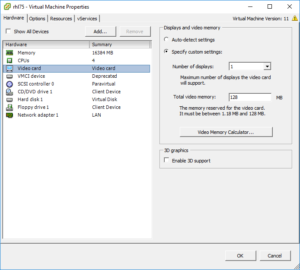
Installation
1. Start the VM
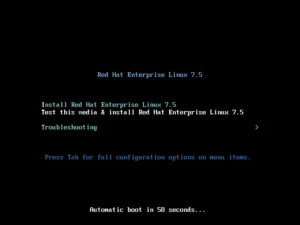
2. Press Enter or wait a minute
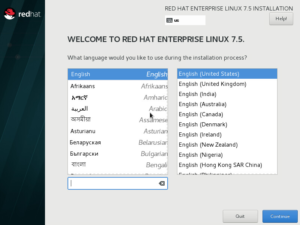
3. Click on Continue
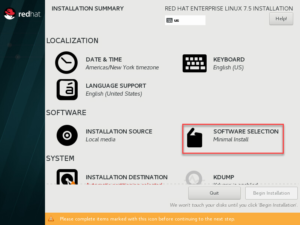
4. Click on SOFTWARE SELECTION
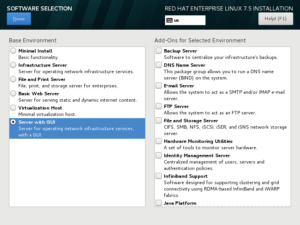
5. Select Server with GUI and click on Done
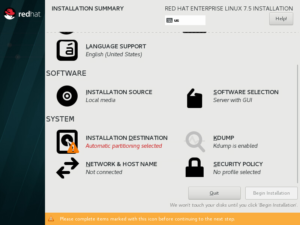
6. Click on INSTALLATION DESTINATION
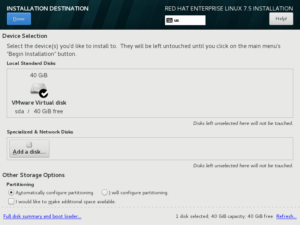
7. Click on Done
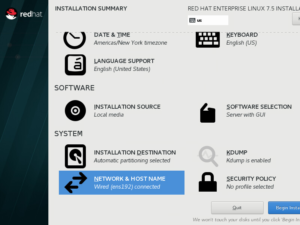
8. Click on NETWORK & HOSTNAME
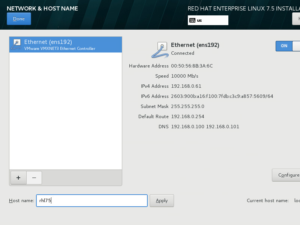
9. Activate network, provide Host Name and click on Done
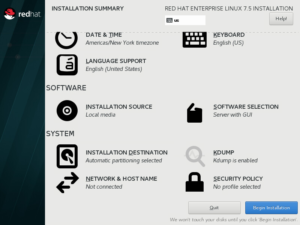
10. Click on Begin Installation
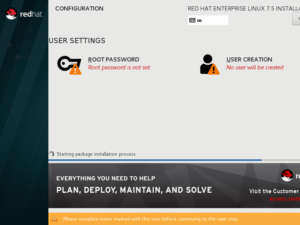
11. Click on ROOT PASSWORD
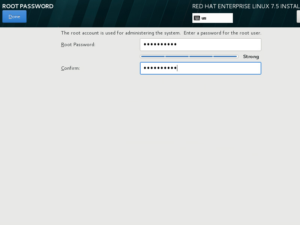
12. Provide a password for Root account and click on Done
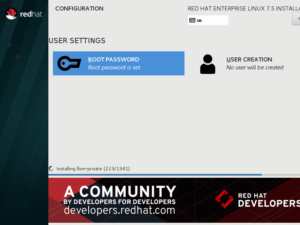
13. Installation continue
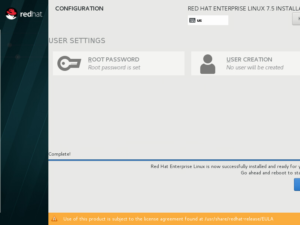
14. Click on blue button
Initial Configuration
1. After reboot
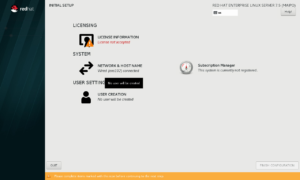
2. Click on LICENSE INFORMATION
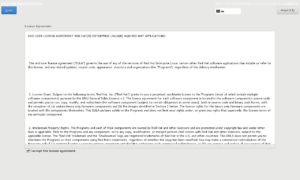
3. Accept the license agreement and click on Done
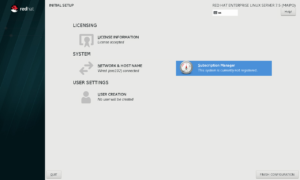
4. Click on Subscription Manager
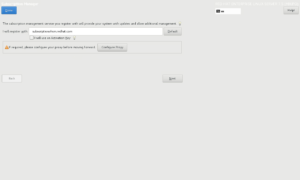
5. Click on Next
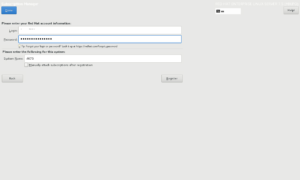
6. Provide Login and Password and click on Register
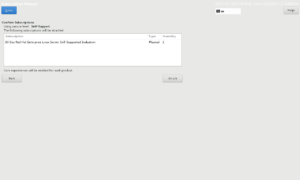
7. Click on Attach

8. Click on Done
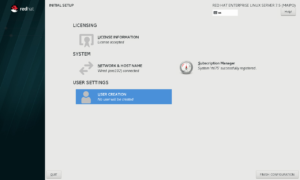
9. Click on USER CREATION
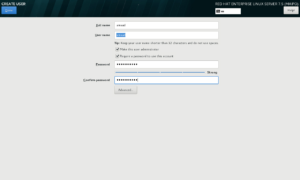
10. Provide information and click on Done
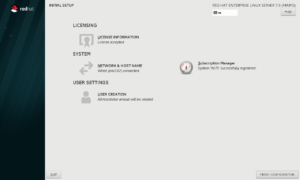
11. Click on FINISH CONFIGURATION
Deployment of Linux VDA Installation
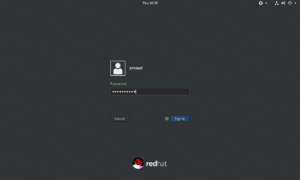
1. Logon on VM
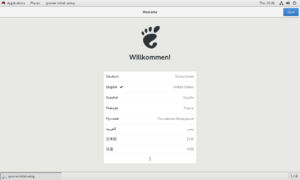
2. Click on Next
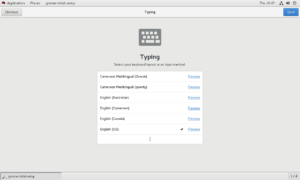
3. Click on Next
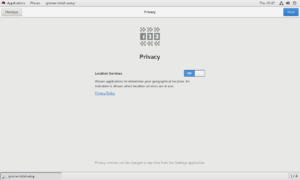
4. Click on Next
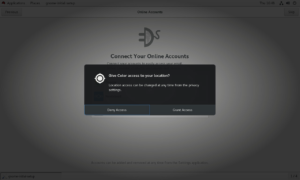
5. Select your preference
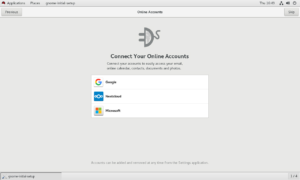
6. Click on Skip
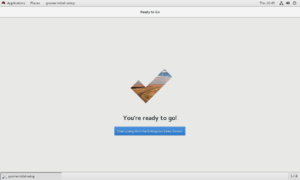
7. Click on Start using Red Hat Enterprise Linux Server
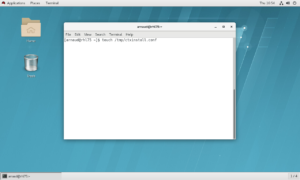
8. Open Command line and create ctxinstall.conf file using command touch /tmp/ctxinstall.conf
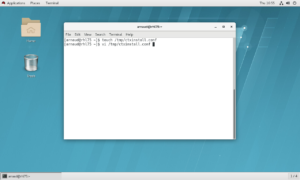
9. Edit the created file using command vi /tmp/ctxinstall.conf
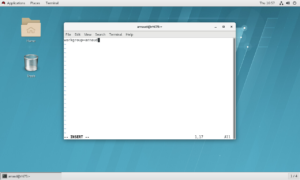
10. Add the line workgroup=<Your domain> and save the file
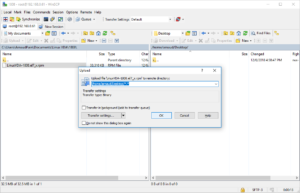
11. Copy the Linux VDA Package to the VM (you can use WinSCP)
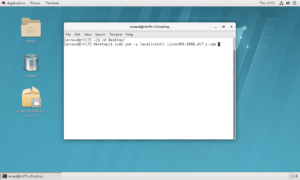
12. Within Desktop folder launch command sudo yum -y localinstall LinuxVDA-1808.el7_x.rpm
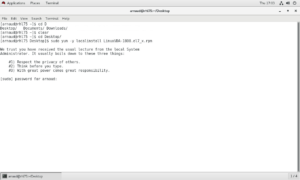
13. When prompt, provide sudo password and press Enter
Configuration of Linux VDA Installation
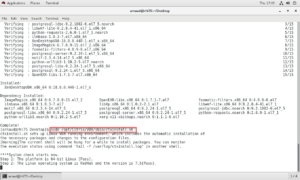
1. After the installation of the package, run the following sudo /opt/Citrix/VDA/sbin/ctxinstall.sh
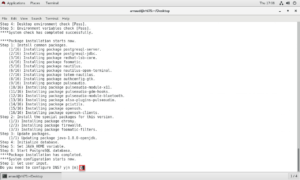
2. Type y and press Enter if you want to provide DNS
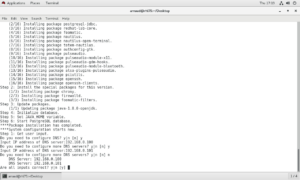
3. Confirm the DNS server you want to add if some
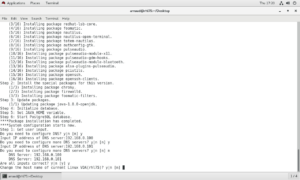
4. You change the name of the VM if you want
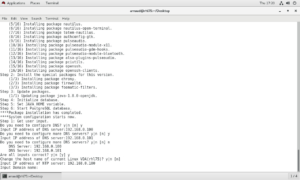
5. Provide the IP Address of a NTP server
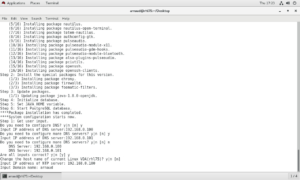
6. Provide the NetBIOS name of your domain
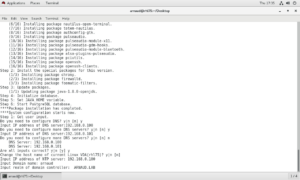
7. Provide the fully qualified name of the domain in CAPS
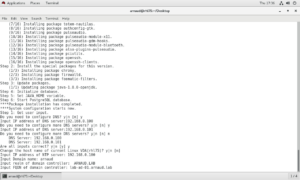
8. Provide FQDN of a domain controller
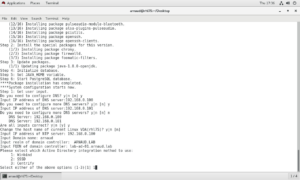
9. Select your preferred AD integration method
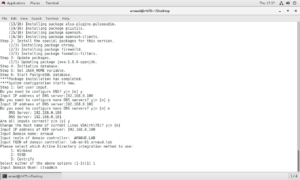
10. Provide name of a user that has permission to integrate VM in AD
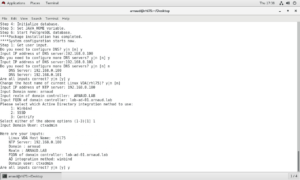
11. Verify and validate your inputs
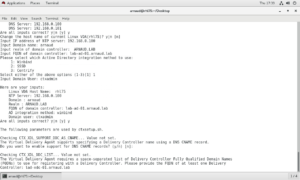
12. Provide the FQDN of your Delivery Controller
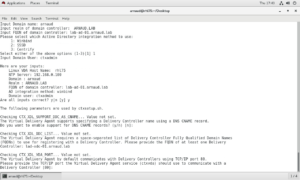
13. Validate Delivery Controller port
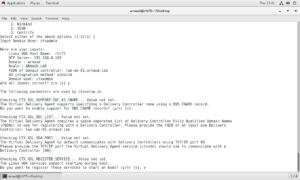
14. Select to start services on Boot
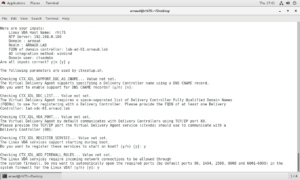
15. Validate Firewall port opening
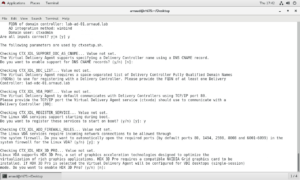
16. Validate if you want to enable HDX 3D Pro
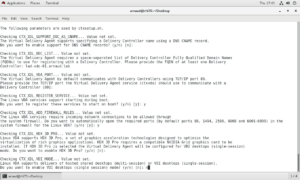
17. Select the appropriate choice base on your expectations
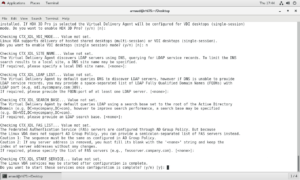
18. Press Enter 5 times
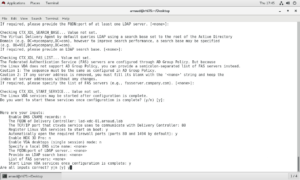
19. Verify and validate your inputs
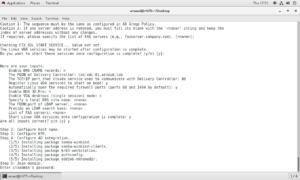
20. Provide the password of the AD account
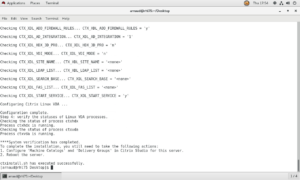
Delivery Controller configuration
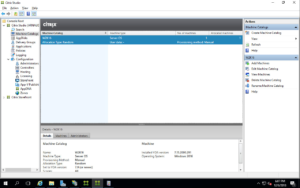
1. In Delivery Controller console click on Create Machine Catalog
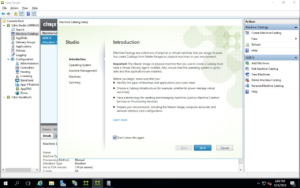
2. Click on Next
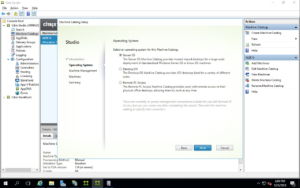
3. Click on Next
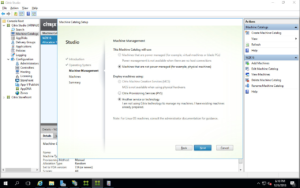
4. Click on Next
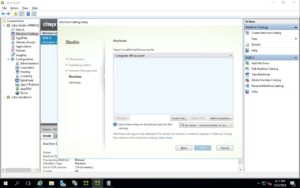
5. Click on Add computers…
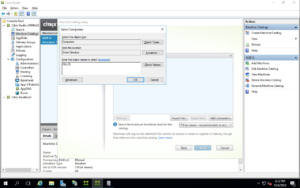
6. Provide the name of the VM and click on OK
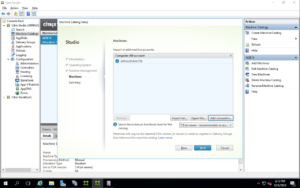
7. Click on Next
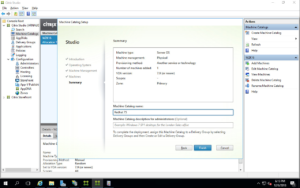
8. Provide a name for the Machine Catalog and click on Finish
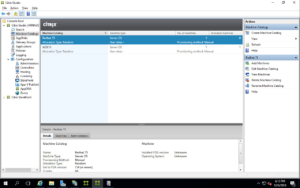
9. Click on Delivery Groups
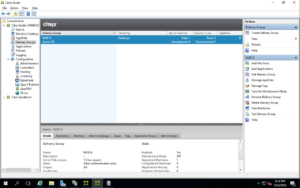
10. Click on Create Delivery Group
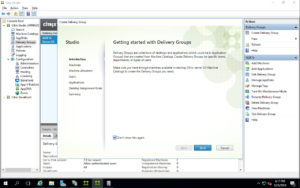
11. Click on Next
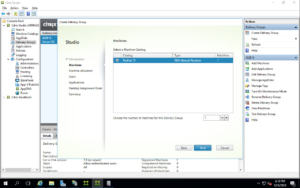
12. Click on Next
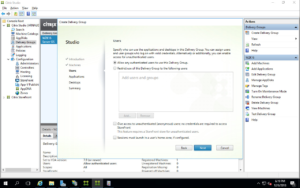
13. Click on Next
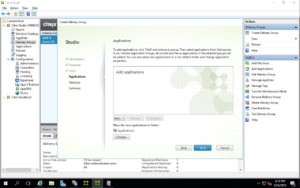
14. Click on Next
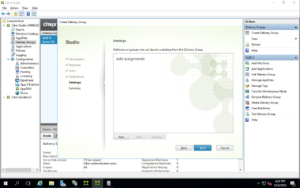
15. Click on Add
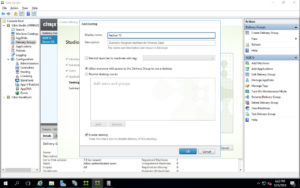
16. Provide a name and click on OK
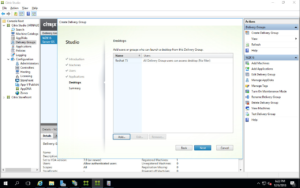
17. Click on Next
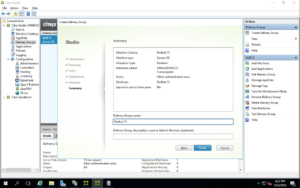
18. Provide a name for the Delivery Group and click on Finish
19. Reboot the Linux VM
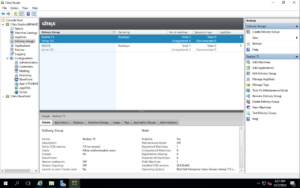
20. Validate that VM is registered
Validation
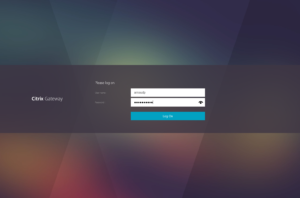
1. Log on your NetScaler
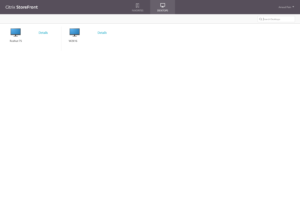
2. Click on your Linux VM
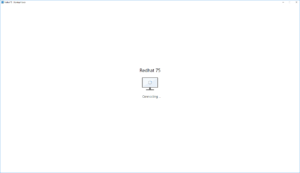
3. The session starts
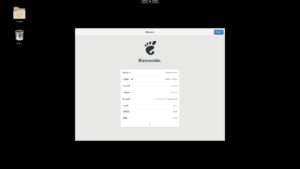
4. The desktop opens.
As it’s the first time the user opens a session, user is prompted to configure his session.
Note: I am not a Linux expert and the above steps are based on my own experience.